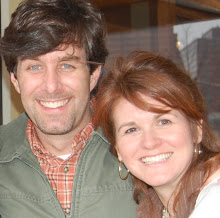It is common to say that as a Christian, Jesus "died for my sins." But what does that mean? Which sins? The younger brother's sins were obvious. What was the sin of the elder brother? Keller helps us here, "The elder brother's problem is his self-righteousness.... the main barrier between Pharisees [ie, elder brothers] and God is not their sins, but their damnable good works."
Did he just say what I think he said? Yeah. And he goes on, "To find God we must repent of the things we have done wrong, but if that is all you do, you may remain just an elder brother. To truly become Christians we must also repent of the reasons we ever did anything right.... It is only when you see the desire to be your own Savior and Lord [through having an earned moral record, rather than an "honorary" record] that you are on the verge of understanding the gospel and becoming a Christian.... Pride in his good deeds, rather than remorse over his bad deeds, was keeping the older son out of the feast of salvation.... Pharisees are being good but out of fear... They don't really trust [God] or love him. To them, God is an exacting boss, not a loving Father."
This is a remarkable revelation. The younger brother was lost because of his badness, but the elder brother was lost because of his goodness—or at least for wanting to be good for the wrong reasons (to control the father and receive a reward for an "earned" record... SELF-righteousness). When we read Luke 15, we think it is the younger brother who is the bigger sinner, only now to learn that it was the elder brother who actually was in a far worse spiritual condition.
Wow, how I need to hear this so that I might put my religious flesh to death today at the cross, and find hope and joy in the sheer grace of Jesus.
And you know what else? It makes me think that apparently "churched" areas are in desperate need for this kind of gospel understanding. I know that I am.





